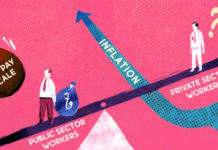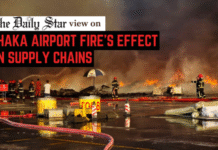The American government has pushed retailers like Walmart and Gap to demand better working conditions at factories in the developing world that make their merchandise. But it turns out that the government, which buys more than $1.5 billion of clothes from overseas factories, does not follow its own advice.
Factories in Bangladesh, Haiti, Cambodia and elsewhere that make uniforms for federal workers often violate basic labor standards, according to a report in The Times by Ian Urbina. (Most American military uniforms are made in the United States.) One Cambodian factory that makes clothes sold on Army and Air Force bases has employed children as young as 15. A factory in Bangladesh that makes uniforms for the General Services Administration beats workers to keep them in line.
These conditions are common in poor countries where local and national governments are too weak or corrupt to enforce their own labor laws. That is why it’s important that retailers and American government agencies inspect and monitor factories to make sure they are not buying from businesses that exploit workers or put them in harm’s way. A building collapse in Bangladesh that killed more than 1,100 workers in April drove that message home to many clothes companies. More than 120 Western retailers have since agreed to seek better conditions.
Administration officials say they understand the importance of this issue; a presidential executive order last year tightened rules against using factories that employ forced labor. But many government agencies that use middlemen exercise little or no oversight over the factories that are used. And stores that sell more than $1 billion in clothes on military bases every year outsource factory inspections to private retailers that have done a poor job of monitoring suppliers.
The government must do better. Federal agencies can start by disclosing the names of all factories they use; Congress could then order an investigation of the labor violations in those facilities. Next, agencies should jointly develop a code of conduct for overseas factories as well as an inspection regimen. Washington might also consider joining the retailers who have agreed to improve building safety in Bangladesh. In these and other ways, the federal government would improve the lives of millions of workers and set an example for the private sector to follow.
Source: NYTimes









